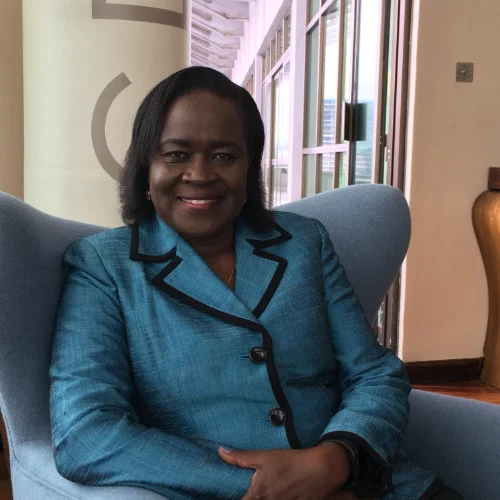San Francisco-USA
Steven P. Jobs minced no words when talking about Android, Google’s mobile operating system, which he saw as too similar to the iPhone’s.
He told his biographer, Walter Isaacson, that Android was “a stolen product” and said, “I’m willing to go thermonuclear war on this.”
But so far Apple has not gone to war with Google, at least not directly. Instead, Apple has sued the cellphone makers that use Android in their products — like Samsung, which was hit with a claim of more than $1 billion in damages on Friday when a jury found that it had infringed on some of Apple’s patents.
Now, though, the war is drawing closer to Google’s doorstep. Google is increasingly making its own hardware, thanks in part to its acquisition of Motorola Mobility, or playing an integral part in designing it, as it did with the Nexus 7 tablet.
And the jury in the Samsung trial found that features built into Android, and not just features added by Samsung, violated Apple patents — potentially forcing Google to adjust its software.
“Apple’s desire is to be able to put Google on that hot seat, but they need a path to actually be able to do that, and so far all they’ve seen is a way to go after actual hardware makers,” said Charles S. Golvin, a mobile industry analyst at Forrester.
Google could end up more squarely in Apple’s sights if it doesn’t take precautions, Mr. Golvin said. “What it means for the Android folks is a very careful review, back to the drawing board, including a close examination of Apple’s stable of patents to weed out anything that looks risky in terms of violating the Apple portfolio,” he said.
Apple and Microsoft have both sued phone makers in large part because it is far easier to calculate the damages those companies could owe from the sale of patent-infringing phones.
Unlike Apple, which makes both iPhone software and hardware, Google makes Android software but leaves the manufacturing of phones and the customization of specific Android features to other companies, like Samsung, HTC and Motorola.
(Though Google now owns Motorola, it has said it will work no more closely with Motorola than with the other hardware companies when it comes to making Android phones.)
And Google gives the Android software to manufacturers at no charge. Instead, it makes money on Android indirectly, by selling mobile ads, along with apps and media in its Google Play store.
It would be difficult for Apple to prove that Google is benefiting financially from patent infringement, or that Google, and not the hardware manufacturers, is directly responsible for potential damages caused to Apple, said Robert P. Merges, faculty director of the Center for Law and Technology at the University of California, Berkeley.
That could change as Google makes or designs more products itself. If Apple really went after Google, Mr. Merges said, it could end up hurting its own products. The iPhone includes a Google search bar in its Safari browser, and Google offers some popular apps, like one for Gmail, in Apple’s App Store.
A direct attack could compel Google to remove such features from the iPhone and make it a less attractive product to consumers, he said. That kind of relationship has not stopped Apple in the past, though. Samsung, for instance, is a major supplier to Apple of iPhone parts like chips and screens.
Google has also foreshadowed that it has grounds to countersue Apple, much as companies like Samsung have done. Google has patents on several important iPhone features like maps and search, for instance.
“Even though you are at war with these guys on one front, you want to try to maintain strategic peace in other areas if you can,” Mr. Merges said.
Still, peace between Google and Apple is looking shakier by the day. Lawyers from Google have been working closely with those from hardware manufacturers, including Samsung, to defend against Apple, according to two people with knowledge of Google’s legal tactics.
Several features that Apple said Samsung’s devices had infringed are built into Android, like pinching the screen or tapping to zoom. Another, the rubber band effect, when the screen bounces to indicate reaching the top or bottom, was part of Android until recently.
According to a person briefed on Google’s Android design plans, Google removed the effect for design reasons, not in response to patent litigation.
“Most of these patent claims don’t relate to the core Android operating system,” Google said in a statement on Monday.
“The mobile industry is moving fast and all players, including newcomers, are building upon ideas that have been around for decades.” Google declined to comment on whether it would make changes to Android.
But when it comes to features like tapping to zoom, it may have to “design around” Apple’s patents and safeguard itself and its hardware partners, said Robert Barr, a law professor at the University of California, Berkeley and former patent counsel for Cisco Systems.
Google set itself up as a target earlier this year when it acquired Motorola Mobility, an Android phone maker with which Apple has been locked in a multiyear legal battle over smartphone patents. A federal judge in June dismissed a lawsuit between Apple and Motorola.
Earlier this month, Motorola filed a new suit against Apple with the International Trade Commission. Still, owning Motorola also armed Google with its own arsenal of mobile-related patents, so a fight between Apple and Motorola could result in a settlement in which the two companies agreed to license each other’s patents, Mr. Barr said.
The Samsung conflict is likely to linger. Samsung has said it will ask the judge in the case to overturn the jury’s verdict and, if that fails, will file an appeal with a higher court. Apple on Monday asked a federal judge to block the sale of eight Samsung smartphones.
But the chance that Samsung will have to take those phones off store shelves soon is slim, because of the likelihood that such an action could be delayed, pending appeals by Samsung.(New York TImes)
Nick Wingfield contributed reporting from Seattle.
















































![Pula Co-Founders and Co-CEOs, Rose Goslinga & Thomas Njeru. Pula provides agricultural insurance and digital products to help smallholder farmers manage climate risks, improve farming practices and increase their incomes. [ Photo / Courtesy ]](https://businesstoday.co.ke/wp-content/uploads/2021/01/Pula-Co-Founders-and-Co-CEOs-Thomas-Njeru-Rose-Goslinga.jpg)




























































Leave a comment